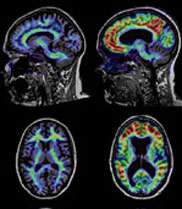Putting Alzheimer’s on early notice

Australian scientists have presented key findings at an international Alzheimer's disease conference this week. Their major focus is on early detection and discovering why the disease progresses.
The International Conference on Alzheimer's disease in Hawaii heard that scientists from the Australian Imaging Biomarkers and Lifestyle Flagship Study of Ageing (AIBL) have identified advances in imaging and blood screening that will contribute to the earlier detection of Alzheimer’s.
About 250,000 Australians currently have Alzheimer’s disease, but numbers are anticipated to rise to 1.3 million in the next 40 years if there were not significant breakthroughs in prevention and treatment of the disease.
The national collaborative approach taken by AIBL scientists was initiated by CSIRO’s Preventative Health National Research Flagship on Alzheimer’s prevention research and has resulted in 22 research papers being accepted and presented at the conference.
The director of CSIRO’s Preventative Health Flagship, Professor Richard Head, said many of the major contributions presented at the conference were only made possible through the national collaboration of scientists from a wide range of disciplines across Australia.
"This collaboration has provided critical expertise and capability at a size necessary to enable us to understand early identification of the disease and the contributing factors to its progression," Professor Head said.
"The advancement in our research would not have been as strong or as rapid were it not for the broad range of expertise brought together by this collaboration."
The level of recognition from the world’s leading forum on dementia research confirms the success of the initiative, he said.
Professor Head said the AIBL research has combined advanced neuroimaging, cognitive performance studies, blood screening and lifestyle studies to start identifying early indicators of the disease.
"The imaging component alone has potentially brought forward the detection of Alzheimer's disease by 18 months," he said.
















